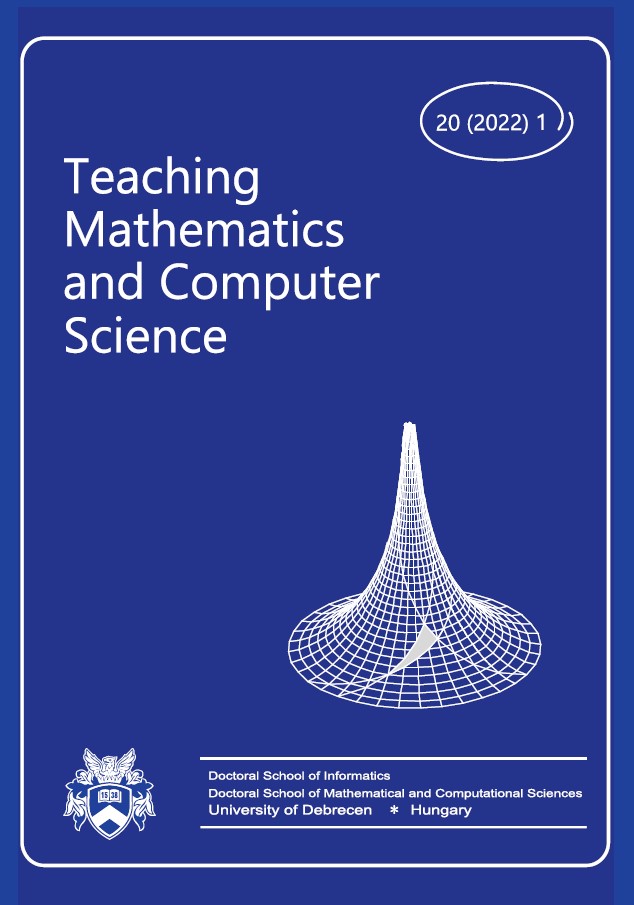Connections between discovery learning through the Pósa Method and the secondary school leaving examination in three Hungarian mathematics classrooms
Authors
View
Keywords
License
Copyright (c) 2022 Michael Urbanski, Zoe Daunt, Tarang Saluja, Márta Barbarics, Péter Juhász

This work is licensed under a Creative Commons Attribution 4.0 International License.
How To Cite
Abstract
The Pósa Method is a guided discovery learning method that has been used in Hungarian education in the form of extracurricular activities for "gifted" mathematics students. A four-year experiment implemented the method in three more "average" classrooms. This article reports on the relationship between the Pósa Method and the standardized secondary school leaving mathematics exam (Matura Exam in short) in Hungary. Data consists of students' survey responses, teacher interviews, and exam results from the three Hungarian classrooms who took part in the four-year experiment. We identify aspects of the Pósa Method that can benefit and hinder exam performance. In addition, we find that learning through the Pósa Method for the four years of high school has adequately prepared students for the exam.
Subject Classification: 97D44, 97D54, 97D64

 https://doi.org/10.5485/TMCS.2022.0537
https://doi.org/10.5485/TMCS.2022.0537






